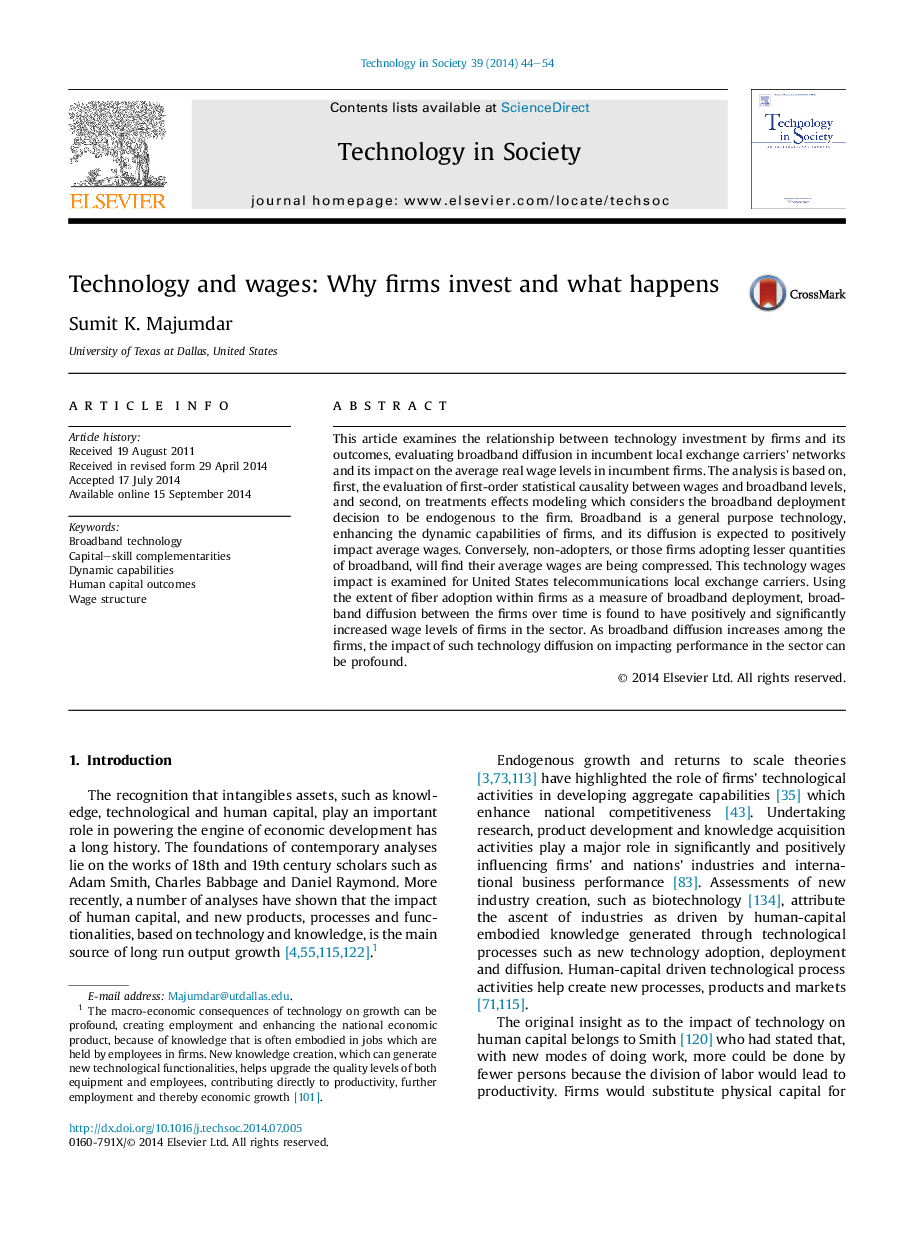| Article ID | Journal | Published Year | Pages | File Type |
|---|---|---|---|---|
| 375178 | Technology in Society | 2014 | 11 Pages |
•This study evaluates broadband diffusion dynamics and wage levels of adopting firms.•Technology impacts wages and firms with a propensity to invest in technology pay higher wages.•Treatment effects modeling deals with endogenous adoption and selection bias.•Firms' broadband deployment in impacting wage levels is positive and significant.•Appropriate policies leading to greater technology adoption are prognosticated.
This article examines the relationship between technology investment by firms and its outcomes, evaluating broadband diffusion in incumbent local exchange carriers' networks and its impact on the average real wage levels in incumbent firms. The analysis is based on, first, the evaluation of first-order statistical causality between wages and broadband levels, and second, on treatments effects modeling which considers the broadband deployment decision to be endogenous to the firm. Broadband is a general purpose technology, enhancing the dynamic capabilities of firms, and its diffusion is expected to positively impact average wages. Conversely, non-adopters, or those firms adopting lesser quantities of broadband, will find their average wages are being compressed. This technology wages impact is examined for United States telecommunications local exchange carriers. Using the extent of fiber adoption within firms as a measure of broadband deployment, broadband diffusion between the firms over time is found to have positively and significantly increased wage levels of firms in the sector. As broadband diffusion increases among the firms, the impact of such technology diffusion on impacting performance in the sector can be profound.
